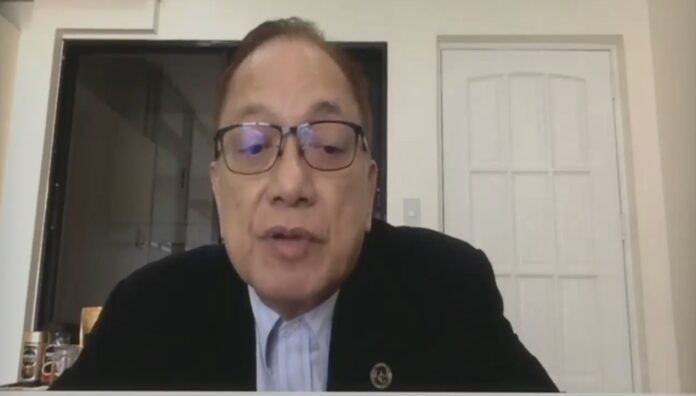
-
Cold Chain Association of the Philippines (CCAP) said it has not been called to assist in the storage and distribution of the COVID-19 vaccines being procured by the government
-
Government instead talking directly to service providers with pharma-grade cold chain capability
-
CCAP reiterated it remains ready to extend its services to the government’s vaccine distribution program
The Cold Chain Association of the Philippines (CCAP), despite manifesting its willingness to provide its services, has not been tapped by the government to assist in the storage and distribution of the COVID-19 vaccines the Philippines is procuring.
“Makailang ulit na po kaming nakipag-usap sa gobyerno para ilahad ang aming kakayahan [“We have several times approached the government to talk about] our capabilities and our willingness to participate in this vaccine distribution program, if we are called upon,” CCAP president Anthony Dizon said during a Senate Committee of the Whole hearing on January 15.
Since the government has not responded and has given no clear direction, CCAP has not started making any action plans, but is nonetheless still ready to extend its services, Dizon said.
Health Secretary Francisco Duque III, during the same hearing, confirmed the government has not tapped the services of CCAP, explaining they are talking directly to service providers.
“Ang kinakausap namin diretso na doon sa providers. Ready naman po kaming makipag-ugnayan sa inyong asosasyon kung meron pa kayong mga pwedeng i-rekomenda,” Duque said.
[“We’re talking directly with the providers. We’re ready to communicate with your association if you still have any recommendations.”]
The government is dealing directly with Orca Cold Chain Solution, Royal Cargo, Maersk, Pharmaserv, Vantaztic, Inc., LBC, MetroPac Movers, Inc., Royal Cold Storage, Coolaire, Fast Logistics, and Zuellig Pharma Corp.
National Task Force Against COVID-19 chief implementer Carlito Galvez, Jr., for his part, explained they are talking to service providers capable of pharma-grade cold chain.
“Ang kinakausap po natin ay yung pharma grade, kasi kailangan po ng training diyan at ng extensive experience kasi balita po natin ay talagang very sensitive po yung pag-handle ng cold chain,” Galvez said.
[“We’re talking to those that are pharma grade because we heard the handling of cold chain is really very sensitive and needs training, extensive experience.”]
In response, Senator Nancy Binay said: “Yes, kaya nga, Sec. Galvez, napakahalaga na kinakausap na natin itong grupo ng cold chain ‘di ba? Kasi what if meron sa kanila na willing naman to shift to pharma grade?” [Yes, Sec. Galvez, so isn’t it important that we are already talking to this group of cold chain? What if there are those among them willing to shift to pharma grade?”]
Binay noted that if more cold chain service providers come on board, then the government would not have to limit the vaccines that have a higher efficacy rate but require ultra-low storage to just a few cities with cold storage capable of handling the temperature requirement. At the same time, the provinces can have other vaccines, too, including those which have lower efficacy.
Galvez earlier said vaccines from US-based companies Moderna and Pfizer, which have higher efficacy rates but need storage at temperatures of between -20°C and -70°C, will only be distributed in certain areas in the country with available cold chain that can handle such temperature requirement. Vaccines from Sinovac, Johnson & Johnson, AstraZeneca, and Novavax, which do not require ultra-low temperatures, will be distributed in other areas.
Galvez, during the hearing, denied there is discrimination in the distribution of vaccines. He said they have told local government units they can connect directly with cold chain pharma operators. He noted that the city government of Manila recently announced it is establishing a cold chain facility for the vaccines it is purchasing for its residents.
Galvez said they are also exploring a “spoke and hub strategy” wherein cold storages capable of ultra-low temperatures can also be deployed in different areas “so that other people in rural areas can also have access to our safe and effective vaccines.”
Dizon, meanwhile, noted that CCAP members have been operating “for so many years under the guidelines of the regulatory agencies that pertain to cold supply chain,” and they think the guidelines for the government’s vaccine distribution program will not be too different from those guidelines.
CCAP is a multisectoral grouping of companies and other professional organizations in the Philippines participating in the supply chain of chilled and frozen food products as well as other groups operating temperature-controlled product storage or distribution. – Roumina Pablo




